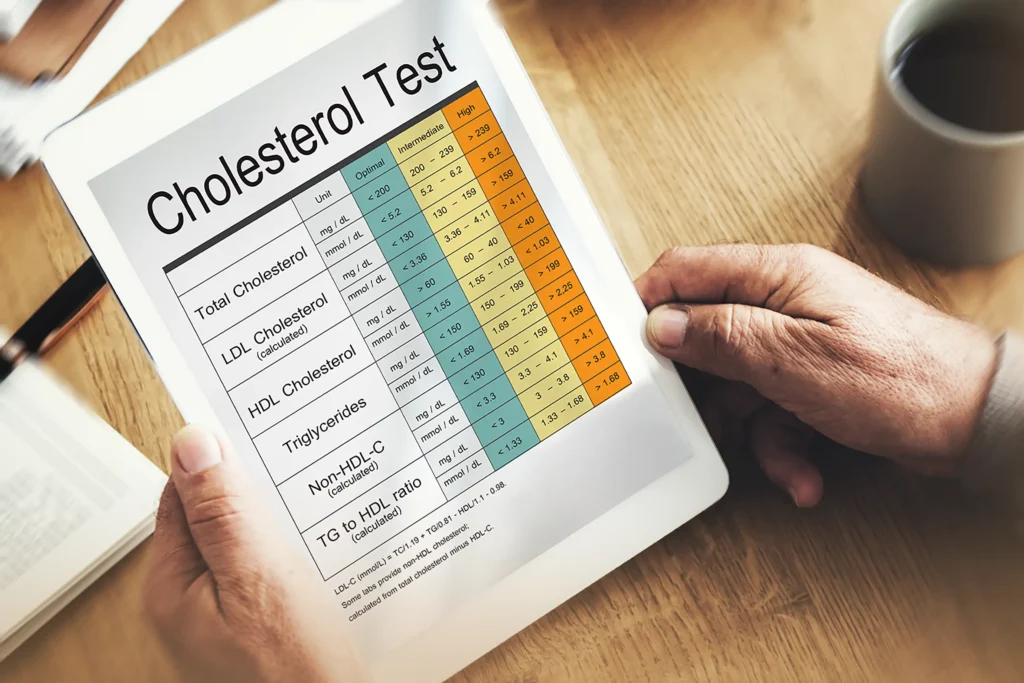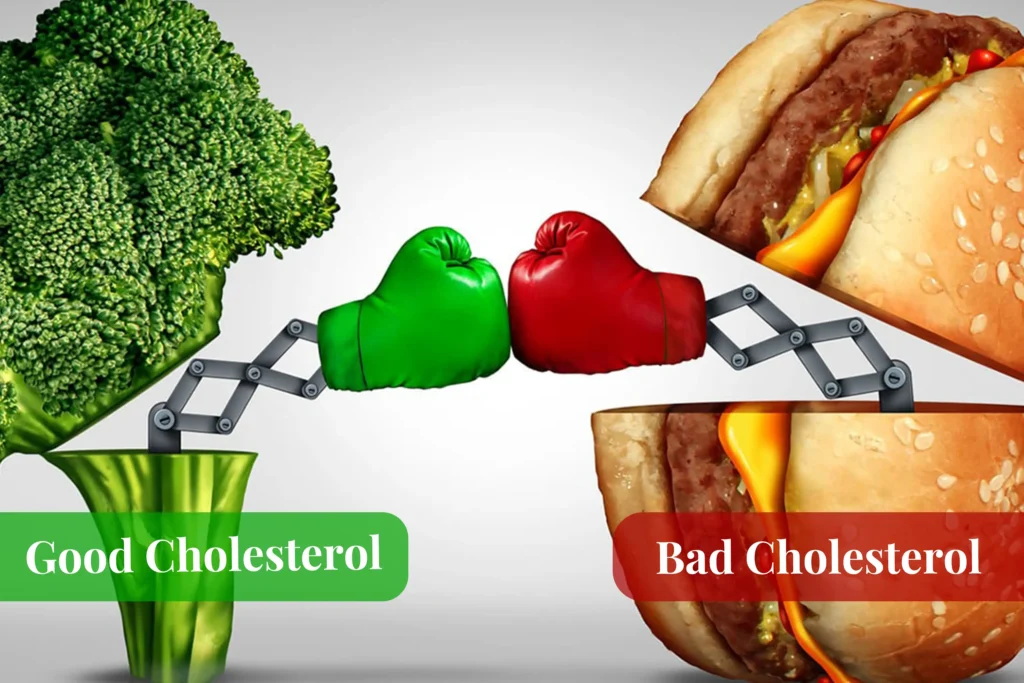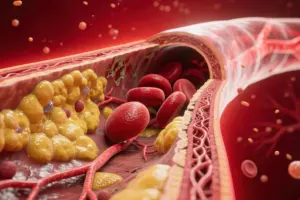
High cholesterol is one of the most common health risks worldwide today. It’s one of the key contributors to heart disease, stroke, and poor cardiovascular health. Our sedentary lifestyle choices and junk food are the major contributors to the problem of high cholesterol.
What is cholesterol?
Cholesterol is a waxy, fat-like substance that is used to build cells, produce hormones, and make vitamin D for the body. Despite its bad reputation, cholesterol within prescribed limits is good for the body.
Types of cholesterol
LDL (Low-Density Lipoprotein): Often dubbed ‘bad’ cholesterol, LDL can build up on the walls of your arteries. This could lead to clogged vessels and restrict the blood flow.
HDL (High-Density Lipoprotein): Also called ‘good’ cholesterol, HDL helps carry LDL cholesterol away from the arteries and back to the liver, where it’s broken down and removed from the body.
Ideally, the body needs to have lower LDL and maintain or increase HDL levels. Too much LDL can result in health conditions like heart disease, stroke, hypertension, and blood vessel-related diseases.
Also Read | The diabetes-cholesterol connection: What every patient should know
Causes of high cholesterol
Several factors may impact your cholesterol levels, including family history, obesity, sedentary lifestyle, smoking, and alcohol. Certain medical conditions, like diabetes and kidney diseases, can also increase the levels of cholesterol.
How to control cholesterol
Opt for the healthy fats: Your diet plays a major role in cholesterol levels. Replace saturated and trans fats (found in red meat, butter, and cheese) with unsaturated fats like those found in olive oil, avocados, and nuts. Also, avoid artificial trans fat found in fried foods and baked items. Trans fats are known to raise bad cholesterol and lower the good kind.

Include fibre in the diet: Incorporate food that’s high in soluble fibre. Foods like oats, barley, beans, and lentils help lower cholesterol. They also slow down digestion and reduce the risk of heart problems. Ensure that you have around 5-10 grams of soluble fibre each day.
Make nuts your best friend: Almonds, walnuts, pistachios, and flaxseeds are cholesterol-lowering superfoods. Rich in omega-3 fatty acids and plant sterols, nuts support heart function and help keep your cholesterol in check.
Consider plant stanols: Plant stanols (and sterols) are naturally occurring substances found in small amounts in fruits, vegetables, nuts, seeds, and whole grains. They block the absorption of cholesterol in the intestines. Few studies suggest that taking 1.5–3 grams of plant sterols regularly can reduce LDL concentration by around 10 per cent.
Engage in physical activity: Exercise, not just for weight loss, but to keep your body fit and high cholesterol at bay. Regular physical activity helps raise HDL (good cholesterol) and lower LDL (bad cholesterol). Basic exercises like brisk walking, yoga or simple work breaks would also do.
Manage your weight: Having excess weight or obesity can increase your risk of developing high cholesterol levels. Avoid junk food, processed food, and sugary drinks. If you are obese, consider working with an expert on weight management techniques.
Avoid smoking, alcohol consumption: Smoking harms blood vessels, speeds up artery hardening (atherosclerosis), and reduces levels of HDL (good) cholesterol.
Also Read | Can fatty liver lead to diabetes and heart disease? Here’s the truth
While some research indicates that when consumed in moderation, alcoholic drinks can increase good HDL cholesterol, experts say that the cons outweigh the pros. Excessive alcohol can raise triglycerides and blood pressure and contribute to weight gain.
Don’t ignore the meds: For some people, tips and tricks won’t work. In these cases, your doctor may prescribe cholesterol-lowering medications. Don’t skip them. These work best when you have a healthy lifestyle and proper weight.
Get checked: High cholesterol often has no symptoms. Regular blood checkups can help you stay on top of things. Regular checkups are a necessity for those who share a family history of cholesterol troubles.
While cholesterol is rampant these days, managing it is key to protecting your heart and overall health. Use the abovementioned tips to take easy, consistent steps towards improving your cholesterol profile.








